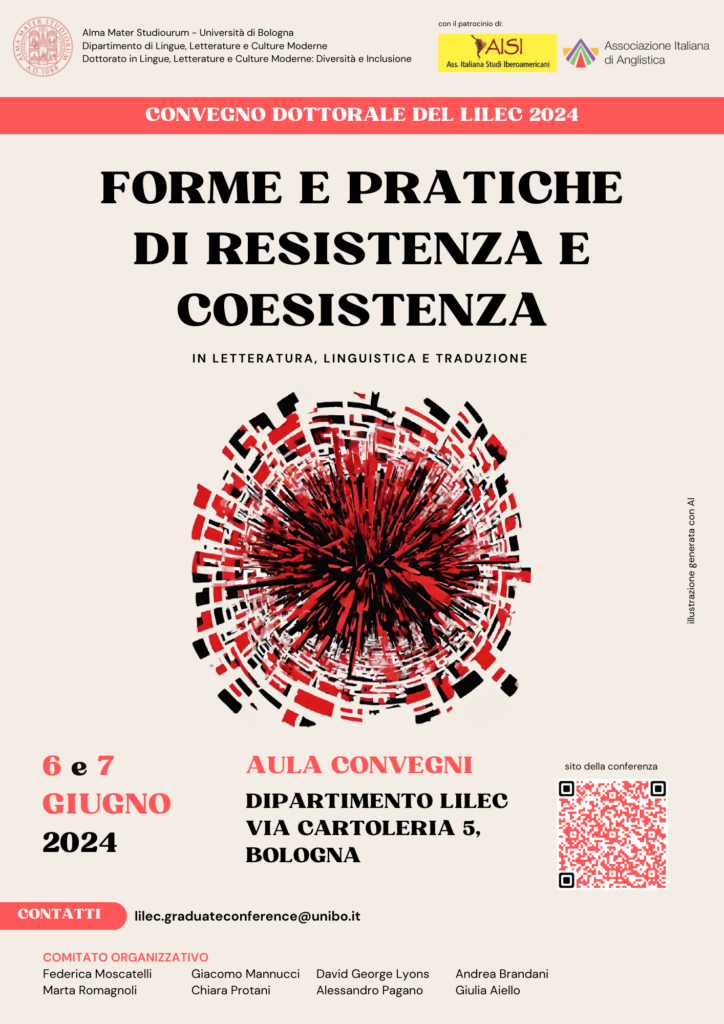CALL FOR PAPERS
Conference 2024 of the PhD in Modern Languages, Literatures, and Cultures, University of Bologna
FORMS AND PRACTICES OF RESISTANCE AND COEXISTENCE IN LITERATURE, LINGUISTICS AND TRANSLATION
6th-7th JUNE2024
DEADLINES
Deadline for submission of abstracts: 10th March 2024
Notification of acceptance: 10th April 2024
Conference: 6th and 7th June 2024
USEFUL INFORMATION
Submit your abstract to lilec.graduateconference@unibo.it
Languages of the conference: Italian or English.
Length of presentation: 20 minutes.
Both individual and group presentations are accepted.
INSTRUCTIONS FOR THE SUBMISSION
Abstracts should be a maximum of 300 words. Short biographical note of 150 words.
Name the file indicating the subject area and your name, e.g.: “LINGUISTICS_FIRSTNAMELASTNAME”.
“To recognise fireflies, one must see them in the moment of their survival: one must see them dancing alive in the dead of night, even if that night is swept away by some fierce spotlight. And even if it is brief. And even if there is little to see: it takes almost five thousand fireflies to produce a light equal to that of a single candle.” (Didi-Huberman 2009 [2010] p.33).
There can be small, marginal and imperceptible practices of resistance that, while retaining their strength and uniqueness, free themselves from the dominant discourse. They are resistances that, going beyond the conflictual relationship, establish a space of shared dialogue, and in the making: a coexistence.
In the wake of Michel Foucault’s thoughts, we will focus on resistances that do not exist outside power, but coexist with it in order to transform it. Resistances do not exhaust themselves in simple forms of dissent or opposition, but represent a form of non-subjection to power, tracing an alternative path.
Various literary forms can be instruments of resistance to power through deep social critique and the promotion of marginalised voices and perspectives. Language and linguistic choices also play a fundamental role as instruments through which identity claims, power relations, and various forms of dissent are conveyed; in this sense, language becomes an arena of symbolic struggle.
In translation, the role of translators is dynamic and non-neutral. They not only connect cultures but also actively spread and advocate specific narratives, contributing to the shaping and spreading of ideas, social, and political models.
This conference aims to explore how literature, linguistics, and translation contribute to developing practices of resistance and coexistence in the contemporary era. In this regard, we welcome contributions that explore innovative methodologies and viewpoints in literary criticism, linguistic and translation analysis, fostering a more profound comprehension of the intricate intersections among literature, language, and acts of resistance.

